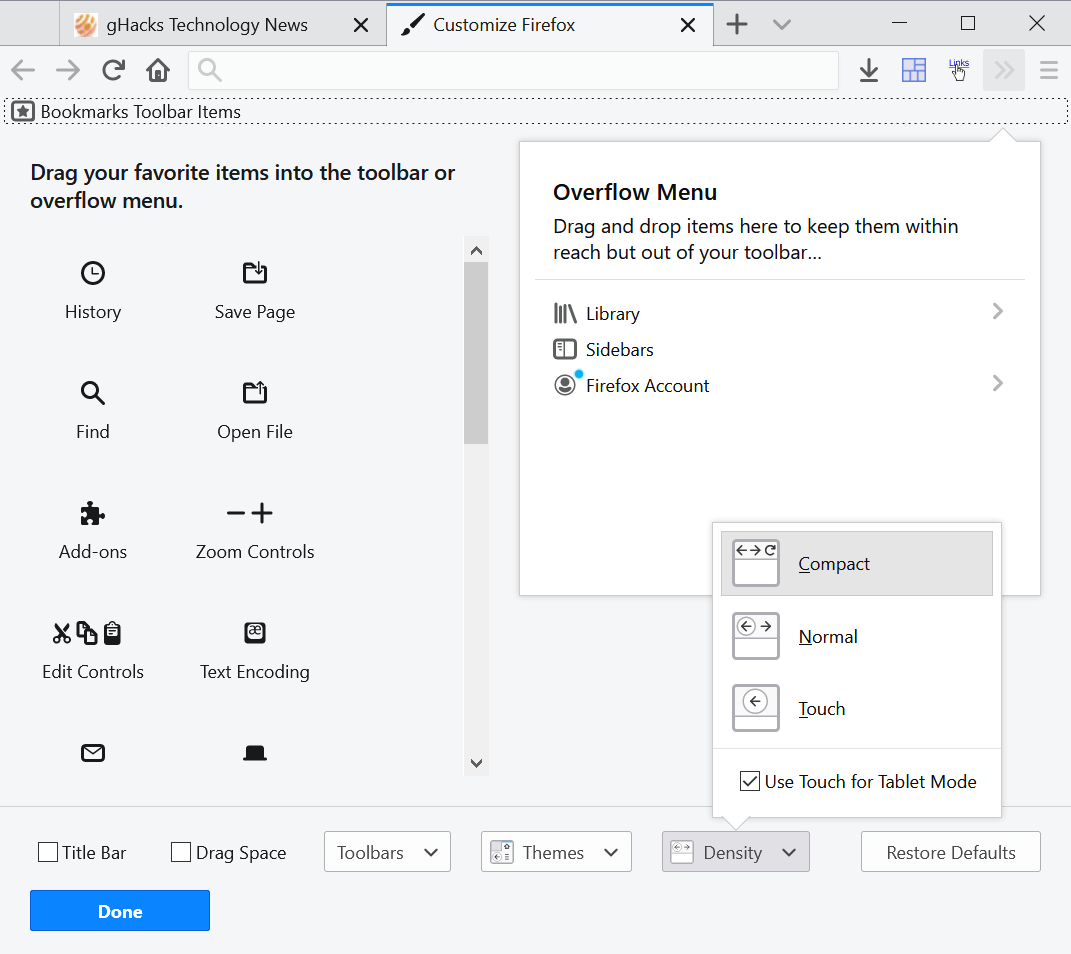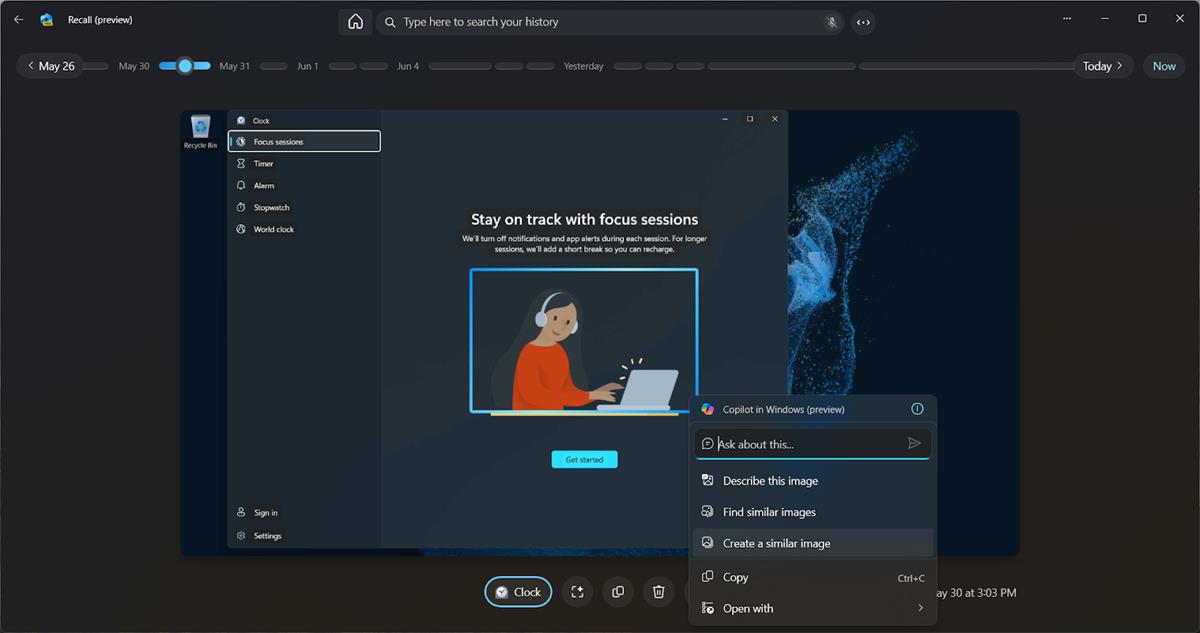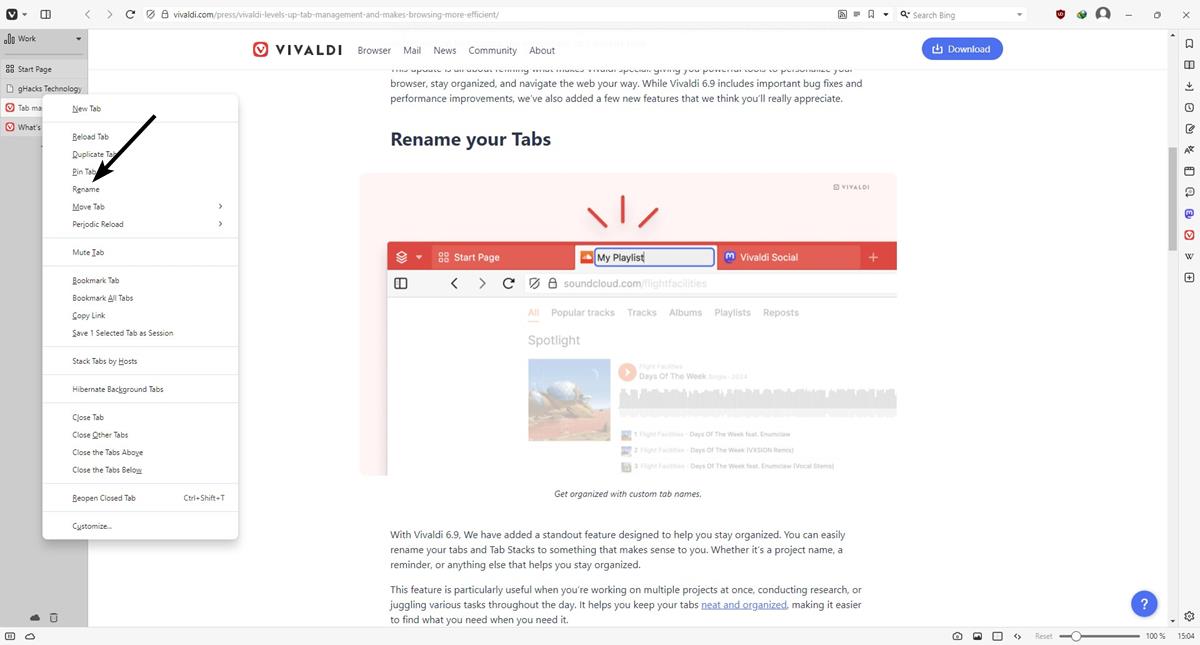Mozilla is trying to figure out if the Firefox Compact mode removal is a good idea

Mozilla's Firefox web browser supports three different theme densities. Normal is enabled by default, but users may switch to Touch mode, for touch-based devices, and Compact mode, to reduce the height of the browser interface and get more room for displayed webpages.
Mozilla revealed plans to remove the latter in an entry on its bug tracking website. Problem was: the wording of the bug made it look like as if the organization based the decision on assumptions and not on hard data.
Sites started to report about it and the discussion heated up quickly. Mozilla may have been unprepared for the backlash and negative press it received from Firefox users and media outlets.
Engineers added new information to the bug, and it appears that at least some of the engineers are interested in getting hard data about usage of the Compact mode feature before making any rash decisions.

Mozilla plans to collect Telemetry data about the usage of compact mode in Firefox. Since the company is working on a new design for Firefox, codename Proton, another bug has been added to collect data about user preferences between normal and compact mode with Proton enabled as well.
Proton will increase the size of the browser chrome significantly when it lands. One positive outcome of all of this is that Mozilla did reduce the height of the navigational toolbar in the Proton version by 8 pixels already, and that it did improve the compact density mode as well under Proton.
Closing Words
There is still hope for Firefox users who use Compact mode in the browser. While it is still possible that the mode will get removed after all, it is reassuring that Mozilla is not just going ahead with the change without basing it on data or reconsidering.
To be fair, objections about the upcoming change were also voiced by Mozilla employees, especially those in the engineering department (as opposed to the UX department, the driver of the change).
Many Firefox users seem to be unaware that they can change the density of the interface, but Mozilla still seems to have been surprised by the reaction of users in regards to the removal of Compact mode in Firefox.
Now You: do you use Compact mode, or would you, if your favorite browser would support it?






















I kind of like this look. To each their own.
I see Iron Heart posted in this thread, so I’m not going to waste my time reading any of the comments. I don’t have time to read (or interest in reading) the comments of a pathetic troll and people arguing with it. So I’m sorry if someone already stated what I’m about to write.
I am strongly in favor of Mozilla keeping the compact mode in Firefox. I find my productivity is increased when using compact mode. I also have established muscle memory in compact mode where I know exactly where all UI elements are positioned. Adding a bunch of wasteful empty space is not in my best interest, nor likely in the best interest of everyone using compact mode.
One of the great benefits of compact mode is revealed when you using Firefox without the window maximized. Please don’t offer to make things more compact depending on the window size (unless the window is so tiny it mandates such modifications). I value consistency of UI in order to maximize UX whenever reasonably possible.
I do wonder the credentials of anyone suggesting the removal of compact mode. As someone who holds a degree in the field (and spent a year of my life writing an extensive thesis on the topic), the notion of removing compact mode looks like an amateur move done by someone without a formal education in the field… or someone over-pressured by improperly educated management. If you don’t have a 4+ year degree in UX from a real university, stay out the kitchen; your intentions may be good, but you are a liability and not an asset.
Mozilla, you can reply to this comment within this gHacks thread if you need help, but somehow I doubt that will happen. From what I’ve seen, it’s rare for Mozilla to ask anyone for help if they actually have to compensate them for their time. They seem to prefer to keep making the same old mistakes (and some new ones) than get the help they so desperately need.
> pathetic
> Mozilla, you can reply to this comment within this gHacks thread if you need help
Don’t think I am the one who is pathetic here.
There is no need to figure out… Its completely wrong. These new gen developers are so idiotic.
My 2 pennies….if ur from outside the US a currency converter helps.
Firefox is pretty much OK. I have no issues with it and the deciding factors for use are 1. Manifest 3 coming and most likely spills over to all chromium based browsers eventually. 2. Ability to theme more precisely to the end users liking than other browsers.
We shall see what we shall have regarding FF & manifest 3. Maybe, maybe not.
I slowly migrated from chrome to FF in the hope that uBlock origin continues to function un-crippled. That’s about it. I do not and will never tolerate any advertising online. Period end of discussion. Ad companies are irresponsible with the added curse and annoyance of targeting and telemetry. In that regard they dug their own grave and played out their cards. It’s a bad hand.
Other than that, there’s no need for politics, use what’s best, get in where u fit in. It’s so redundant reading opinions, that discourage real time discussions of core issues and probably keeps people away from here who otherwise might have great technical suggestions on problem solving and resolutions. KISS and stay on topic please, politics is way out of line on ghacks. And getting boring as heck too.
https://bugzilla.mozilla.org/show_bug.cgi?id=1693028#c17
“it’s not helpful at all to offend the developers and call them “idiotic” and “lazy”.”
Being polite and reasonable has never worked either with Mozilla.
ever since the interface in Firefox had been changed, I had no idea that the ‘compact mode’ was even available until I read this article
Compact Proton Fx 88 Nightly
https://github.com/Aris-t2/CustomCSSforFx/commit/51544e2f8a948dec5de35169a2df0ca422b83e7c
Thanks but how long till they break this to?
Some people, such as Gorhill and Aris, are like living gods.
Mozilla has been notoriously anti-power user and rarely responds to criticism of their decisions to gut everything that made Firefox to replace it with Chrome in everything but the name.
They say they’re listening to feedback, but they didn’t budge when they gutted XUL extensions and DRM’d their default theme to only allow for background and toolbar icon colors. People complained about the changes and yet they went ahead and ignored everyone.
@ngamer01
>gutted XUL extensions and DRM’d their default theme to only allow for background and toolbar icon colors.
They had to modernize the browser, make it faster and more secure. If you wanted the XUL extensions then you had the fork waterfox. Not ideal but still at least an alternative. Not all was lost for those users.
As for themes? browsers should be basic, clean, simple not a resource hog like vivaldi with its uber customization.
@Anon7
> As for themes? browsers should be basic, clean, simple not a resource hog like vivaldi with its uber customization.
Yep, and this basic, clean, simple browser that users choose is called Chrome. Firefox cannot beat Chrome on these parameters. They could try for some others, but they methodically throw out all the advantages over Chrome from the browser.
P.S.
Vivaldi is at least trying to offer users something that almost no other at least relatively large browsers can now offer – customizability and functionality.
> Vivaldi is at least trying to offer users something that almost no other at least relatively large browsers can now offer – customizability and functionality.
I disagree, the customizability is only really offered for their GUI, since that browser is based on chromium, its not very functional, chromium browsers like vivaldi are prone to web rtc leaks.
Gecko is far more robust and functional at its core than chromium.
Vivaldi on both my systems is fast and uses less resources than Firefox.You can change almost anything to your liking just by going into settings.And you can even use userChrome on top of that.Vivaldi is the customizable browser that Firefox should have been.
@Tony
Its not open source. Therefore can not be trusted.
Open source isn’t magically ‘trustworthy’ by default either.
@FOSS SCHMOSS
It is magically MORE trustworthy by default, because it shows that the developers have nothing to hide, the code can be reviewed by tech hobbyists. If there is anything malicious, it can be found.
Proprietrary on the other hand is far more suspicious since things are hidden. Since this post was about vivaldi, i would not be surprised if they can see all your bookmarks, you would not know for sure whether they can or not because the code is closed source. Theres a lot of PR fluff involved with proprietrary apps.
That being said, i do believe vivaldi to be considerably more trustworthy over lets say chrome or opera as regards privacy. Its a good alternative to those. I’m not saying people should not use vivaldi, its just i believe there are better options out there if you want transparency as regards a browser.
I am using Compact Mode for years now and for my small compared to todays screensize I dont want it getting removed. Moreover Proton is no choice for me, if it gives more room to the browser-gui.
I don’t use the compact mode. Natter of fact, I STILL use the Menu and Bookmark Toolbars.
Why do they focus on telemetry above common sense.
The more screen area you have for content or controls, the more productive you are.
Many tech-savvy users who know about the compact mode will disable, but also had telemetry disable.
The broad backlash is extra info for them to think and use their common sense, but they still want to fall back on telemetry data to support their stupid choices.
How did people in past make software with good UI’s without using telemetry?
Did they use magic? Nope. Just logic, as it works in the majority of cases.
https://bugzilla.mozilla.org/show_bug.cgi?id=1693028#c20
“Friendly reminder of the rule 4 on commenting and avoiding to spam everyone in CC on this bug”
“No pointless comments.”
“This does include request like “Please don’t remove this because…”.”
Yes, please confine user voices to the spam folder instead. Sorry I meant, the “Firefox development forum”.
This article is of interest to Firefox users and is definitely good news.
Anyway, we should be calm!
Firefox’s developers are paying close attention to the user’s intentions.
The “Proton” development team recognizes the challenges of telemetry and recognizes the need for “compact density”. It is just a stage of “Nightly build”, and it is different from the specifications of the normal version.
Above all, it is recognized not only by users but also within Mozilla as a “problem that requires good treatment”, and we can definitely expect progress.
In my experience and that of the user community (forums.mozillazine.jp), “reasonable opinions†are treated legitimately. In other words, we are getting some reasonable results.
https://www.ghacks.net/2021/03/14/mozilla-plans-to-remove-the-compact-density-option-from-firefoxs-customize-menu/#comment-4489131
Improve Proton compact density | Bug 1697293
https://bugzilla.mozilla.org/show_bug.cgi?id=1697293
Reconsider how much vertical space Proton toolbars consume | Bug 1698244
https://bugzilla.mozilla.org/show_bug.cgi?id=1698244
Reduce height of the navigation toolbar by 8px, following updated spec from UX. r=mstriemer,desktop-theme-reviewers,ntim
Resolution: — → FIXED
Target Milestone: — → 88 Branch
Run an experiment to determine user preference for Normal vs Compact UI density in Proton | Bug 1698171
https://bugzilla.mozilla.org/show_bug.cgi?id=1698171
Given that the “normal” design of the Proton UI is significantly less compact than pre-Proton, it would be useful to determine whether the “Normal” or “Compact” density is preferred by users.
The telemetry that has just landed in bug 1698100 does not address this, because (a) it will relate to usage of Compact mode with the non-Proton Firefox UI, which is not comparable in overall density; and (b) the option to enable Compact mode is not readily discoverable, and probably only a small proportion of users ever become aware that it exists.
To better inform our decision-making here, when Proton ships to users, we should compare user acceptance of the Normal vs Compact options by:
â— setting the default density to Compact for a meaningfully-large experimental population; and
â— adding telemetry that will tell us what proportion of users who start with the default Normal setting choose to change the setting to Compact, and vice versa.
This will give valuable insight into which interface most users prefer — data that is sorely lacking at the moment (and will not be answered by the bug 1698100 telemetry). This might lead us to reconsider whether the option to switch between them should be retained in the browser UI, or should be made more (or less) readily discoverable.
The problem with removing features based on telemetry data is – the intersection of users who use said features and users who disable telemetry resembles a full circle. Telemetry is mostly from non-technical users who do not touch settings at all.
So if telemetry tells them the majority of their users are non-technical and don’t tweak settings to enable Compact mode, logically speaking doesn’t it make perfect sense for them to prioritize other features and not waste resources on recreating Compact mode in the new design? Think about it…
@Anonymous
https://en.wikipedia.org/wiki/Survivorship_bias
By the way, “telemetry” (available to everyone) shows that the majority of browser users are non-technical and don’t tweak settings and _prefer Chrome_. This means that such an “option” as Firefox should be stopped developing.
Have I clearly demonstrated the problem of this approach to conclusions based on telemetry results? (and focusing solely on the “number of users” data)
If they don’t know how to properly use telemetry (telemetry data), then everyone would be better if they didn’t use telemetry.
“Have I clearly demonstrated the problem of this approach to conclusions based on telemetry results?”
No you haven’t. The fact that you really believe you have, based on the amazingly idiotic comparison between 1. market share of FF vs Chrome and 2. telemetry of a feature *within* FF, is truly hilarious.
Well, OK. This means that firefox is doomed to continue to lose users, since you and Mozilla do not see what your problem is with conclusions based on telemetry.
Hace you seen the size of their new Proton design? That’s enough reason to keep compact mode.But seeing all the retarded decisions they keep making,i don’t have high hopes.And even if they keep compact mode,it will probably be a new “compact” version,grossly oversized.
It’s blackmail, basically: You want to keep your compact mode? Well then, you’ll have to enable telemetry in your browser so we can get ‘hard data’. And even so we can’t promise anything.
So you don’t want them to have any idea how many users are using said feature, but you want them to spend resources on recreating the feature in the new UI design without knowing if there’s any usage justification by the majority for doing so. What a genius. If you were in charge of any company it would go bankrupt in a jiffy for sure.
“you want them to spend resources on recreating the feature in the new UI design ”
No actually i don’t think anyone asked for a “new UI design”. Basically ever, for any software really.
@Anonymous
There must be some reason for the option to appear in the past.
If these reasons have not disappeared – why is the option removed?
If the reasons have disappeared, then where are the proofs and an explanation of why the reasons have disappeared?
“We looked at telemetry data” – not proof not explanation.
6 Point Plan (by Mitchell Baker):
Step one: ̶S̶t̶a̶r̶t̶ ̶U̶p̶ make a decision to remove the option simply “because we (our UX department) decided to”.
Step two: ̶C̶a̶s̶h̶ ̶I̶n̶ after the backlash, we decide to collect telemetry about it (further expanding the information collected about users, yep).
Step three: ̶S̶e̶l̶l̶ ̶O̶u̶t̶ since users, who usually customize the interface, also turn off telemetry, then, based on the results of collected telemetry, we get information that a very small percentage of users use this interface customization option.
Step four: ̶B̶r̶o̶ ̶D̶o̶w̶n̶ ̶ decide to remove this option anyway.
Step five: …
Step six: ̶P̶r̶o̶f̶i̶t̶!̶ We lost another percentage of users because this was the option that still kept them on Firefox.
https://www.youtube.com/watch?v=IwnDWP9v6b8
At this point, i’m convinced that Mozilla has deemed user input as a threat to their vision of what Firefox should be like, and disregard or knowingly defy it out of sheer spite. I’d never would have figured that Firefox would eventually take same route to oblivion as good ol’ Nero Burning Rom, the classic cd burner program, whose name is a perfect allegory for software that self-destruct out of fear of self-destruction.
Ah Nero… Good old days :)
@ShintoPlasm exactly my sentiment. Nero…. Although my first association with Nero Burning Rom was Nero the emperor burning Rome😠Time flies…
@Sebas: That’s precisely the imagery which Ahead Software sought to evoke. From Wikipedia:
“Nero Burning ROM is a pun in reference to Roman Emperor Nero, who was best known for his association in the Great Fire of Rome. The emperor allegedly fiddled while the city of Rome burned. Also, Rome in German is spelled Rom.”
@Peter
What do you think FF should be like? An open source customisable browser that can be hardened has a lot going for it.
@Anon7
> that can be hardened
Here, my favorite comment regarding “hardening Firefox”, again:
https://old.reddit.com/r/GrapheneOS/comments/ciizae/vanadium_and_bromium_privacy/ev6m2ot/
You keep linking this reddit post but where does it say that Brave does it better in relation to achieving “anonymity” through properly randomizing Canvas Data? The only thing that makes Brave less trackable than Firefox by default would be the UA since it’s the same as Chrome’s, all the other privacy settings can also be done in Firefox, if not more. Also not having Chromium as an engine is helps is another big plus which doesn’t YET translate to privacy improvements. :-)
@IronHeart
No one cares about FF mobile, dumbphones by their very nature are not private unless you are willing to pay 2G’s for one such as the purism librem with full hardware kill switches. Btw the browser in the librem is a FF fork.
You accepting googles chromium and trying to ridicule FF gecko will not go unchallenged.
@Anon7
> You accepting googles chromium and trying to ridicule FF gecko will not go unchallenged.
https://www.urbandictionary.com/define.php?term=Fanboy
I do not ridicule the Gecko engine, although I know that it is technologically much inferior to Blink – what I am ridiculing is the horrible company developing it, and the abuse of trust involved there.
@IronHeart
> I do not ridicule the Gecko engine
Every chance you get you ridicule it, you are constantly trolling the FF articles like a hungry dog been thrown a juicy bone. You can not resist.
I don’t object to your input though, i believe in freedom of speech so carry on with your ravings, i find such devotion to brave to be entertaining and somewhat amusing.
Lulz.
“There is still hope for Firefox users…”
No, there is no hope. That’s just a first stage of grief.
It’s honestly sad that people are cheering for total Google domination of web standards. And somehow think that browsers that’s forking from something Google controls is SOMEHOW going to stop Google from doing whatever it wants.
The lack of self-awareness is astounding.
@unknown person
Yes totally right, in one way you could say that Brave and other forks of chromium are googles b1tch.
On the other hand mozilla could easily cut ties with google and get funds elsewhere like their new vpn service or a new search engine deal.
There are ways out for mozilla. not so much for chromium forks.
@Unknown person
Yeah, and 4% market share Firefox (funded by Google) is going to stop Google… :D
Proof that Mozilla ever stopped a relevant Google proposal at the W3C? I am waiting.
@IronHeart
> Yeah, and 4% market share Firefox (funded by Google) is going to stop Google… :D
Whenever Mozilla’s contracts with Google as their default search engine were over, there were other search engines ready to pay them money for the default search engine slot.
Yahoo for example. Maybe duckduckgo can be next who knows.
They are not totally dependent on google, they are launching a VPN service to get some independence back. Thats a good sign that they are looking for other forms of financial independence from google.
Brave on the other hand ARE totally dependent on googles engine chromium.
There is a big difference, that unkown poster is right.
That being said i don’t like mozillas ceo and i don’t like google being a business associate of mozilla currently. goolag want everything to be under their control, all competition.
whatis goolag?
@finoderi
Typical chromium fanboyism, wanting the gecko engine gone and have all browser engines being under the umbrella of chromium, goolags pet.
ONE BIG FAT MONOPOLY OF CONTROL taking the web in whatever direction they see fit.
Smallscale browser developers forever trying to clean chromium up and no alternatives for balance. Thats just great for the end users, NOT!
@Anon7 That’s the second stage of grief: anger.
@Anon7 It would be nice if you had even a vague idea about the meaning at least of a half the words you use.
@finoderi
It would be nice if you were not such a chromium google engine white knight like our dear IronHeart
Lulz you chromium google engine guys are great entertainment. I love it.
Yeah, the whole world is divided in ‘chromium google engine guys’â„¢ and The Valiant Paladins of Impeccable Gecko.
What a pathetic little thing…
Pretty much this, you only have to look at how monopolies have been abused in the past to know that having one dominate browser engine would be a disaster for the openness of the internet.
It would be a case of accept this standard no matter how insecure of bad it is and make your sites work with it because what choice do you have.
@Corky
Those facts seem lost on our resident chromium white knights.
They ridicule mozilla for accepting google cash but have no qualms about using a google made browser engine base LULZ its really hilarious. The epitome of hypocrisy.
They probably all are using android phones aswell, i bet.
@Corky
Open source and monopoly abuse are somewhat contradictory, you know. Chromium is 100% forkable, if Google really does something bad. A Chromium fork can compete with mainline Chromium in the same way Firefox can. You are spouting Mozilla’s marketing here which aims to keep their dying browser Censorfox, uhm, I mean “Firefox” of course, somewhat relevant.
Mozilla’s employees get their paychecks from Google, why would they oppose anything Google does? How naive are you?
@IronHeart
> Mozilla’s employees get their paychecks from Google, why would they oppose anything Google does?
No they do not, they get their cheques from mozilla, they have a deal with the search engine being a default, that is all. Its easy to change, easy to null any google influence by hardening the browser.
On the flip side though, chromium developers are google affilates, so they are the ones who really are beholden to the google censorship communist party, i expect chromium to be completely unforkable soon enough. Brave tor windows breaking is an example that chromium is terrible substitute for real privacy focused gecko forks like the onion router.
@Anon7
> No they do not, they get their cheques from mozilla
…which in turn gets those cheques from Google. :D
> Its easy to change, easy to null any google influence by hardening the browser.
Funny that you say this, considering that they just nuked any ability to turn off Google SafeBrowsing in the mobile version of FF. You also can’t disable the use of Google Analytics and Leanplum (stores data using the Google cloud services) in Firefox on Android. I also expect them to make it harder on the desktop.
However, that’s not my concern. My concern is what the browser does by DEFAULT because that’s how most people will use it. And by default, Firefox has lots of Google in it.
> i expect chromium to be completely unforkable soon enough.
I don’t, why would Google cut itself off from free of charge outside contributions? :D
That would be pretty stupid, also:
1) The open source licenses Chromium is based on don’t allow for such a move, I think.
2) They would piss Microsoft off, their Edge browser uses Chromium. Do you really think that will happen? :D
> Brave tor windows breaking is an example that chromium is terrible substitute for real privacy focused gecko forks like the onion router.
That bug has since been fixed and was not a Chromium issue, but rather an issue unintentionally introduced by Brave Software during the development process.
@Iron Heart, You lied Leanplum can be disabled as I have it off on my android.
Very dishonest ,when you don’t know it all.
@IronHeart
It is very disingenuous of you to constantly throw FF mobile in with FF desktop and make them out to be the same, they are not. They are different software for different hardware platforms.
If you want a decent hardened FF on a dumbphone, then purism librem line and their OS is a valid option. When mozilla does not make browser configurable to be private enough, there will always be hardened forks of FF to fall back on.
> The open source licenses Chromium is based on don’t allow for such a move
Again listen, google will drop chromium if chromium forks become competition, You can almost guarantee they would do something to protect their browser share monopoly.
The chromium open source project was only a red herring to gain a foothold in the FOSS community, google does not value foss, they should not be involved in FOSS considering how unethical they are by using proprietrary browsers and OS’s to invade peoples privacy.
If they really cared about FOSS then why in the hell are they developing proprietary applications like chrome? its laughable!
@Anon7
> goolags pet
https://en.wikipedia.org/wiki/Mozilla_Corporation#Google
> ONE BIG FAT MONOPOLY
How can open source be a monopoly? Care to explain? Chromium can be used / forked / modified by anyone in their own browsers, if Google does something “evil”, it can be readily forked. Nonsense fearmongering on your part.
Also, care to cite one example where Mozilla successfully “opposed” anything at the W3C? I see them siding with their Google paymasters while only Apple occasionally opposes Google.
whatis goolags?
@IronHeart
Whatever goolag wants to do with Chromium, goolag can do it and it doesn’t matter what anyone else wants.
This is not how open source is meant to be. Open source projects should never have a single company calling all the shots.
I would not trust Brave or any other forks of chromium to be able to consistently keep the goolag out.
Brave tor windows breaking was inexcusable. Some poor old soul using it were not kept anonymised by sloppy brave developers. I would not trust them from more breakage in the future from dealing with chromium sloppyness.
Lulz IronHeart you can not defend it. You ridiculing FF/Gecko as being paid by google but defending brave using a google engine is pure hypocrisy. At least Gecko is chromium free. Using chromium would leave a sour taste considering who its from.
Watis goolag?
@Anon7
> Whatever goolag wants to do with Chromium, goolag can do it and it doesn’t matter what anyone else wants.
You do realize though that others can take the open source code of Chromium and create their own fork of it, right? Might also apply changes from upstream where applicable (eases development).
> This is not how open source is meant to be. Open source projects should never have a single company calling all the shots.
Who observes Firefox development? Oh, that’s right, Mozilla does! That’s also a single company. Every project has some sort of leadership, otherwise: Chaos.
> Brave tor windows breaking was inexcusable. Some poor old soul using it were not kept anonymised by sloppy brave developers. I would not trust them from more breakage in the future from dealing with chromium sloppyness.
1) Brave’s Tor windows are a gimmick, there is a reason why Tor Browser exists.
2) That doesn’t mean such bugs are excusable, I am just saying that you should adjust your expectations, and not ride any bug to death which has already been fixed.
3) This has nothing to do with Chromium, it was a bug introduced by Brave Software. If it really were a deep problem of Chromium, how did they fix it?
> You ridiculing FF/Gecko as being paid by google but defending brave using a google engine is pure hypocrisy.
I am not “defending” Brave because it uses Chromium, I am prefering it over other options because there hasn’t been an intentional breach of privacy with this browser yet. Can’t say the same about Mozilla or Google.
> At least Gecko is chromium free.
Yeah, but Mozilla is not Google-free. :D
@IronHeart
>You do realize though that others can take the open source code of Chromium and create their own fork of it, right?
As of now yes, but listen carefully. Brave is an irrelevant common peasant in googles kingdom of control, chromium forks like Brave and vivaldi are not a threat to googles browser share and influence as of now. If however Brave/Vivaldi does get more popular and grabs more market share, then expect google to
(A) Pull the plug on chromium open source project and not maintain it any more to destroy the competition.
(B) Use a different engine and make it propietrary to destroy the competition.
Brave is putting itself into a bad predicament by applying a band aid to a broken product and putting all its eggs into the one basket. If they were serious about a real threat to google browser share, then Brave should have made their own engine.
They are not smart enough to make their own engine like mozilla did. Brave could have used gecko but it would seem brave is hanging on to mommy google because it knows chromium has the biggest market share and it will be fast and flashy and has more web compatibility than gecko. Brave only care about the potential for bitcoin profits, not preservation of gecko a real alternative to the increasing google/chromium browser monopoly.
Little does brave know that if it gets more popular, it will be on googles radar.
Google have already limited chromium forks from using certain API features from chrome, that it is a sign of things to come. They don’t like the competition.
> Brave’s Tor windows are a gimmick, there is a reason why Tor Browser exists.
The whole brave browser is a gimmick unless you are a noob looking to escape the privacy invading google chrome/edge/opera/unhardened FF.
To people who actually know how to configure gecko and harden it, brave is a poor substitute not to mention its objectionable ad integration practices, people don’t care if its opt in or not, its the principle of having it there is whats bothersome, because it could easily be open to abuse, privacy wise.
> This has nothing to do with Chromium, it was a bug introduced by Brave Software. If it really were a deep problem of Chromium, how did they fix it?
The privacy bug resided in the internal ad blocker component of Brave, thats V3 manifest for you, things break by trying to apply a band aid to chromium.
> I am prefering it over other options because there hasn’t been an intentional breach of privacy with this browser yet
The failed tor windows was a breach of privacy, saying its a gimmick is no excuse, many users would have trusted in it not knowing it had a bug. It should not have happened. Its a stain on braves record, to deny it is futile.
> Yeah, but Mozilla is not Google-free
Well, having to constantly accept google chromium scraps like a peasant and having to apply a band aid to chromium is not exactly google free either. :(
It is the first thing I set in Firefox – toolbars compact mode. Second one is duckduckgo search engine.
+1
Similar – except using startpage as search engine. There is no need to have the bars that big. Otherwise, they could have left the menu and status bar and never bring the hamburger menu (three bars) to life.
The goal has to be, or at least was in the past: Leave as much area for browsing as possible.